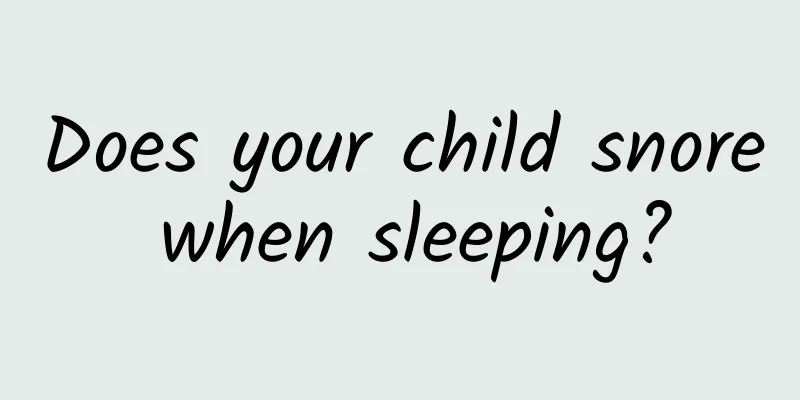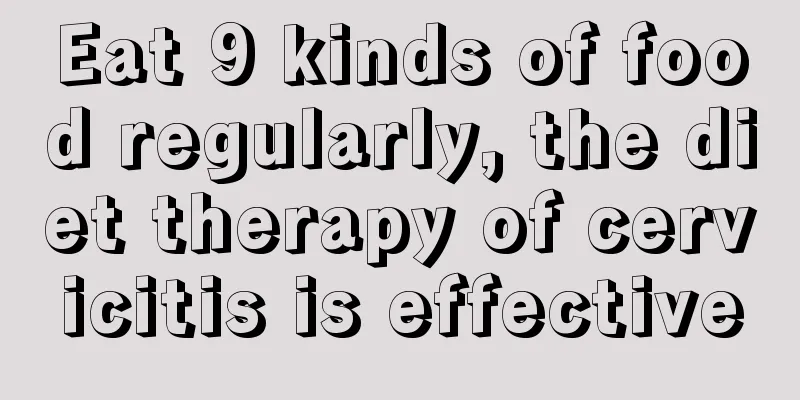Does your child snore when sleeping?

|
Snoring is medically known as "snoring". Childhood snoring refers to hypoxemia during sleep due to partial or complete upper airway obstruction, which causes clinical manifestations such as growth stagnation, abnormal cardiopulmonary function, nerve damage, and abnormal behavior. It is also known as childhood sleep apnea hypopnea syndrome (OSAHS) in medicine. The most common cause of childhood snoring is enlarged tonsils and adenoids. What are the dangers of children snoring? 1. It causes the child to grow slowly. The child snores and has difficulty breathing, which leads to nighttime hypoxia, endocrine disorders, and reduced secretion of growth hormone, affecting the growth of the child. 2. Children's snoring may affect their facial appearance. Children with enlarged tonsils often sleep on their stomachs to ensure that their airways are unobstructed, and they involuntarily extend their lower jaws forward. If this continues for a long time, it will cause the lower jaw to be too long, resulting in an "underbite" face. Children with enlarged adenoids will breathe with their mouths open, causing mandibular dysplasia, narrow and retracted lower jaws, short, thick and upturned upper lips, uneven teeth, protruding upper incisors, and poor bite, which is called "adenoids face." 3. Affecting intelligence. Severe snoring can cause respiratory arrest or hypoventilation, reduce the oxygen content in the blood, damage nerves, and cause cognitive disorders such as inattention, slow reaction, memory loss, learning difficulties, hyperactivity and irritability. In addition, it can also cause complications such as sinusitis and otitis media. Sinusitis can cause headaches, dizziness, poor concentration, memory loss, and affect academic performance; otitis media can cause hearing loss and conductive deafness; "mouth breathing" can also cause dry mouth and induce or aggravate respiratory diseases, such as chronic cough symptoms in children. Because parents do not pay enough comprehensive attention to the early symptoms of snoring in children, few children will take the initiative to seek medical treatment for symptoms such as mouth breathing, snoring, and nasal congestion. By the time they seek medical treatment, serious complications have often occurred. Some children even have facial features such as "small chin" or "underbite" in adulthood due to lack of timely treatment. For most children who simply have enlarged tonsils and/or adenoids, adenoidectomy or tonsillectomy is the most effective treatment. Of course, there are strict surgical indications for surgery. For children with enlarged tonsils and/or adenoids who do not see significant improvement after treatment with regular medications such as nasal spray hormones, oral antibiotics, etc., or who have symptoms that relapse after relief, leading to repeated infections, surgical treatment may be considered. The center's tonsillectomy and adenoids removal all use minimally invasive plasma surgery, which has the advantages of less bleeding, less damage, less pain, and faster recovery. For more details, please consult the center's otolaryngology department. (Author: Wang Wenwen) |
<<: How can I have colon cancer at such a young age?
>>: Can time-restricted eating improve metabolic function? New scientific evidence →
Recommend
Is it a disease to keep losing eyelashes?
My eyes are itchy and dry, and I rub my eyes more...
Why do breasts suddenly become bigger and softer?
Women spend a lot of money on their first face, b...
When is the safe period after menstruation?
Women need to pay attention to many issues during...
Breast pain in early pregnancy
A woman's breasts can be said to be the most ...
Uterine prolapse health care methods
Women with uterine prolapse, in addition to being...
Short girls' autumn and winter dressing skills are very important
Many girls lack confidence because of their short...
Hyperechoic breast nodules
Echo is a test result presented by ultrasound tes...
How can women prevent urinary tract infections?
Female urinary tract infection refers to an infla...
Can I detect pregnancy four days after sex?
Because they are eager to have a child, many fema...
Can I have an abortion if I have cervical polyps?
In our lives, many women will find that they have...
Why does a pregnant woman have leg pain when sleeping?
During pregnancy, the pregnant woman's physic...
What are some tips for girls to get rid of armpit hair?
Armpit hair is a kind of hair that grows on peopl...
How to diagnose your gynecological disease
As we all know, many women suffer from gynecologi...
Does bifluoride and calcium toothpaste supplement fluoride and calcium?
A famous brand of "double fluoride plus calc...
Will a tct test cause bleeding?
TCT examination is actually a cervical cytology e...









